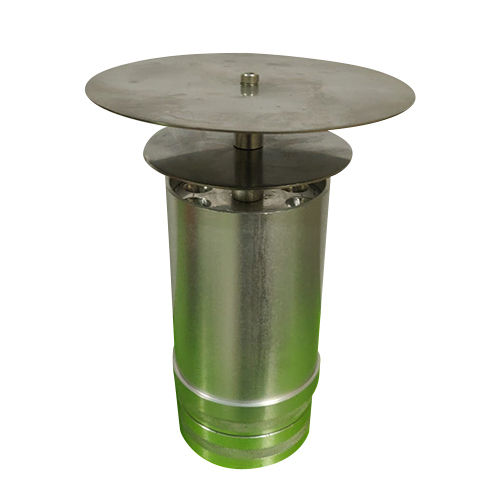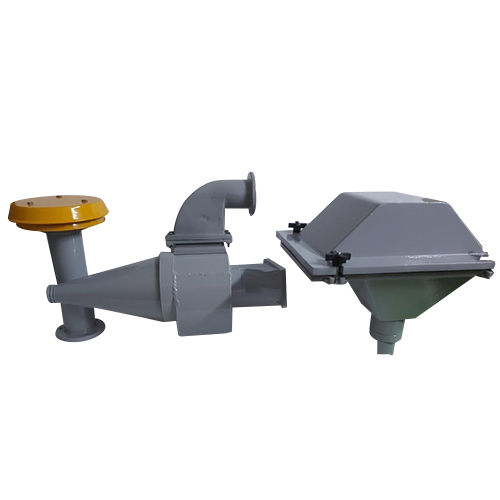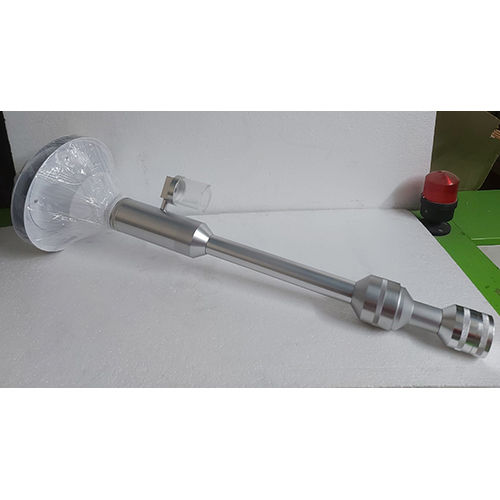à¤à¤®à¥à¤ªà¥à¤à¥à¤à¤° à¤à¤¯à¤° पà¥à¤²à¥à¤¯à¥à¤¶à¤¨ मà¥à¤¨à¤¿à¤à¤°à¤¿à¤à¤ सिसà¥à¤à¤®
Price 2510 आईएनआर/ Unit
à¤à¤®à¥à¤ªà¥à¤à¥à¤à¤° à¤à¤¯à¤° पà¥à¤²à¥à¤¯à¥à¤¶à¤¨ मà¥à¤¨à¤¿à¤à¤°à¤¿à¤à¤ सिसà¥à¤à¤® Specification
- प्रॉडक्ट टाइप
- Impactor Air Pollution Monitoring System
- मटेरियल
- Metal
- कूलिंग सिस्टम
- एयर कूलिंग
à¤à¤®à¥à¤ªà¥à¤à¥à¤à¤° à¤à¤¯à¤° पà¥à¤²à¥à¤¯à¥à¤¶à¤¨ मà¥à¤¨à¤¿à¤à¤°à¤¿à¤à¤ सिसà¥à¤à¤® Trade Information
- Minimum Order Quantity
- 1 Unit
- भुगतान की शर्तें
- कैश एडवांस (CA)
- आपूर्ति की क्षमता
- प्रति महीने
- डिलीवरी का समय
- दिन
- मुख्य घरेलू बाज़ार
- ऑल इंडिया
About à¤à¤®à¥à¤ªà¥à¤à¥à¤à¤° à¤à¤¯à¤° पà¥à¤²à¥à¤¯à¥à¤¶à¤¨ मà¥à¤¨à¤¿à¤à¤°à¤¿à¤à¤ सिसà¥à¤à¤®
A sort of air sampling device used to quantify and examine airborne particles in ambient air is called an impactor air pollution monitoring system. It is frequently used in environmental monitoring, industrial hygiene, and research applications to evaluate the potential health effects of particulate matter, analyse air quality, and identify pollutants.
The main elements and characteristics of an impactor air pollution monitoring system are as follows:
1. A device called an impactor sampler, which is part of the system, is used to segregate particles according to various sizes. The air sample is often sent into a number of stages or impactor plates via a nozzle or input. The collection of a size-segregated sample is made possible by the fact that each stage collects particles of particular sizes.
2. Classification of Particle Size: The impactor sampler uses various impactor plates or stages to categorise particles according to their aerodynamic dimension. To separate particles into distinct size fractions, such as PM10 (particulate matter with a diameter of 10 micrometres or less) or PM2.5 (particulate matter with a diameter of 2.5 micrometres or less), these stages are built with precise cut-off sizes.
3. Sample Collection: At each impactor stage, filters or collection plates are used by the impactor air pollution monitoring system to collect the size-separated particles. The samples that were gathered can later be examined for their chemical make-up, toxicity, or other qualities.
4. Measurement and Flow Control: To maintain a steady and controlled air flow rate during sampling, the system includes a flow control mechanism, such as a pump or flow controller. To achieve precise and repeatable findings, the flow rate is frequently monitored using a flow metre or flow sensor.
5. Data Logging and Analysis: A number of impactor air pollution monitoring systems provide data logging features that enable the storing and recording of pertinent data such as flow rates and sampling parameters. The information gathered can be used for pollutant level estimation, particulate matter characterization research, and air quality evaluation.
6. Calibration and quality control: To guarantee the accuracy and dependability of the impactor air pollution monitoring system, routine calibration and quality control processes are crucial. In order to preserve the accuracy of the readings, calibration entails checking the flow rate, particle size cut-off, and other factors.
Impactor air pollution monitoring devices are essential for analysing and keeping track of airborne pollutants, including dust, smoke, aerosols, and fine particles. They offer useful information for scientific research, occupational health and safety, regulatory compliance, and environmental assessments.
Consider factors like the desired particle size range, sampling flow rate, sample collection substrate, data logging capabilities, calibration requirements, and any unique regulatory or research requirements applicable to your monitoring objectives when choosing an impactor air pollution monitoring system. To select the best system for your unique requirements, it is advised to speak with manufacturers or experts of air pollution monitoring instruments.


Price: Â
- 50
- 100
- 200
- 250
- 500
- 1000+
अधिक Products in Air Pollution Monitoring Equipment Category
रेस्पिरेबल डस्ट सैंपलर एयर पॉल्यूशन सिस्टम
मूल्य की इकाई : यूनिट/यूनिट
मूल्य या मूल्य सीमा : आईएनआर
प्रॉडक्ट टाइप : Respirable Dust Sampler Air Pollution System
मटेरियल : Metal
न्यूनतम आदेश मात्रा : 1
माप की इकाई : यूनिट/यूनिट
औद्योगिक वायु प्रदूषण निगरानी उपकरण
मूल्य की इकाई : यूनिट/यूनिट
मूल्य या मूल्य सीमा : आईएनआर
प्रॉडक्ट टाइप : Industrial Air Pollution Monitoring Equipment
मटेरियल : Metal
न्यूनतम आदेश मात्रा : 1
माप की इकाई : यूनिट/यूनिट

 जांच भेजें
जांच भेजें जांच भेजें
जांच भेजें


